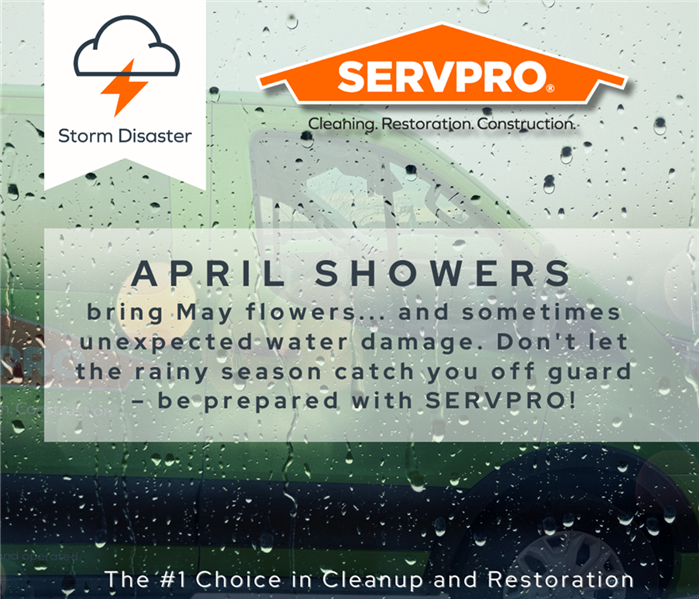April Showers: Tips to Stay Prepared for Water Damage with SERVPRO®
3/27/2024 (Permalink)
As April rolls in, so do the showers that characterize this transitional season. While rain brings life to the earth, it can also bring unforeseen challenges, especially when it comes to water damage in homes and businesses. Whether it's a leaking roof, a burst pipe, or flooding from heavy rainfall, water damage can wreak havoc on properties if not handled promptly and effectively. This April, SERVPRO® is here to help you stay prepared for whatever Mother Nature sends your way. Here are some essential tips to mitigate water damage and protect your property.
Inspect and Maintain Your Roof: Your roof is your first line of defense against water intrusion. Before the rainy season hits, inspect your roof for any signs of damage such as missing or cracked shingles, deteriorated flashing, or clogged gutters. Addressing these issues early can prevent leaks and potential water damage to your interior.
Check Your Plumbing: Inspecting your plumbing system is crucial for preventing water damage inside your home. Look for signs of leaks under sinks, around toilets, and behind appliances like washing machines and dishwashers. Keep an eye out for dripping faucets or unusual water stains, as these could indicate hidden leaks that need attention.
Maintain Proper Drainage: Ensure that your property has adequate drainage to redirect rainwater away from your home or business. Clean out gutters and downspouts regularly to prevent clogs and overflow, which can lead to water seeping into your foundation or basement. Consider installing extensions on downspouts to direct water at least six feet away from your property.
Install a Sump Pump: If your property is prone to flooding, installing a sump pump can be a lifesaver. A sump pump helps remove excess water from your basement or crawlspace, reducing the risk of water damage and mold growth. Test your sump pump before the rainy season begins to ensure it's in good working condition.
Invest in Water Detection Devices: Water detection devices can provide early warning of potential water damage, allowing you to take swift action before it escalates. Consider installing water sensors in areas prone to leaks or flooding, such as basements, laundry rooms, and bathrooms. These devices can alert you to moisture levels and leaks, giving you the opportunity to address issues before they cause significant damage.
Have a Water Damage Emergency Plan: In the event of water damage, having a clear plan in place can help minimize the impact on your property. Know where your main water shut-off valve is located and how to turn it off quickly to prevent further damage. Keep emergency contact information, including SERVPRO's number, readily available so you can get help fast.





 24/7 Emergency Service
24/7 Emergency Service
